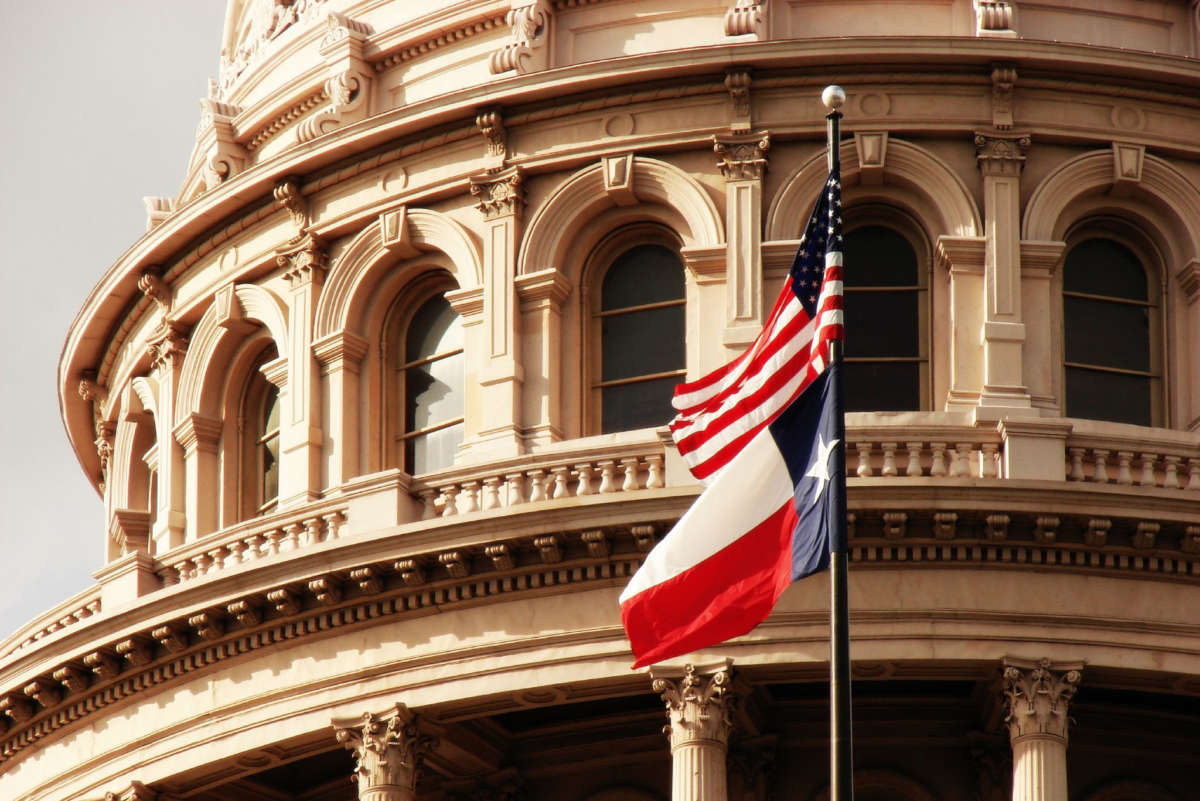The United States Department of Justice (DOJ) has filed a lawsuit against the state of Texas over recently-passed legislation that imposes restrictions on voters from marginalized communities.
The Republican-authored law, known as Senate Bill (SB) 1, passed the legislature late this summer after Democrats unsuccessfully tried to block it by fleeing the state to prevent a quorum on its vote. The law created a number of new restrictions, including outlawing drive-through voting, creating an application process for people with disabilities to have others assist them in voting, implementing strict ID requirements for voting by mail, and making it easier for poll watchers to intimidate voters at the ballot box.
The DOJ is focusing its lawsuit on two specific provisions of the statute, which it claims are in violation of the Voting Rights Act and the Civil Rights Act of 1964. The Justice Department contends that the law will make it harder for people with disabilities and people who do not speak English to vote. The law also puts undue constraints on mail-in voting through additional ID requirements.
“The challenged provisions will disenfranchise eligible Texas citizens who seek to exercise their right to vote, including voters with limited English proficiency, voters with disabilities, elderly voters, members of the military deployed away from home, and American citizens residing outside of the country,” the lawsuit states. “These vulnerable voters already confront barriers to the ballot box, and SB 1 will exacerbate the challenges they face in exercising their fundamental right to vote.”
Gov. Greg Abbott (R-Texas), who signed the law in September, responded to the lawsuit by writing “Bring it” on Twitter and alleging that the statute “is legal.” But Democratic lawmakers in Texas welcomed the lawsuit from the DOJ.
“Senate Bill 1 is a sweeping piece of legislation that creates unnecessary and deliberate barriers to voting,” read a joint statement from the Democratic chairs of the state House Democratic Caucus, Mexican American Legislative Caucus, Texas Legislative Black Caucus, and Legislative Study Group.
Leading voices within the DOJ, including Attorney General Merrick Garland, said the lawsuit was necessary in order to preserve Texas voters’ rights.
“Our democracy depends on the right of eligible voters to cast a ballot and to have that ballot counted. The Justice Department will continue to use all the authorities at its disposal to protect this fundamental pillar of our society,” Garland said in a statement.
“Texas Senate Bill 1’s restrictions on voter assistance at the polls and on which absentee ballots cast by eligible voters can be accepted by election officials are unlawful and indefensible,” added Kristen Clarke, head of the DOJ’s civil rights division.
48 Hours Left: All gifts to Truthout now matched!
From now until the end of the year, all donations to Truthout will be matched dollar for dollar up to $28,000! Thanks to a generous supporter, your one-time gift today will be matched immediately. As well, your monthly donation will be matched for the whole first year, doubling your impact.
We have just 48 hours left to raise $28,000 and receive the full match.
This matching gift comes at a critical time. As Trump attempts to silence dissenting voices and oppositional nonprofits, reader support is our best defense against the right-wing agenda.
Help Truthout confront Trump’s fascism in 2026, and have your donation matched now!
